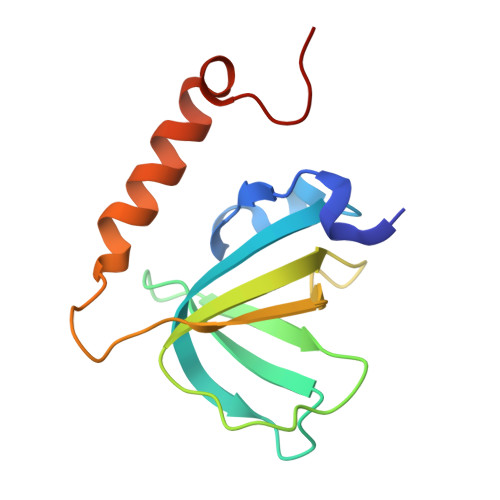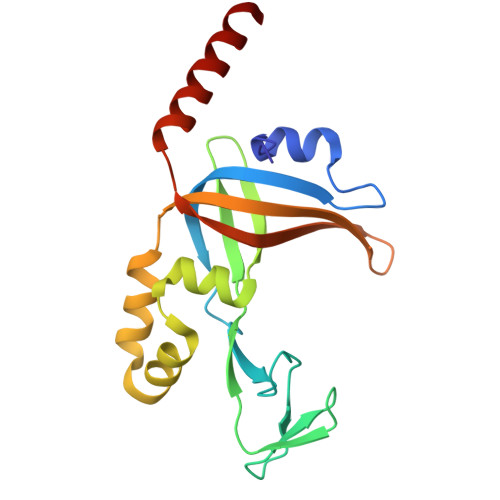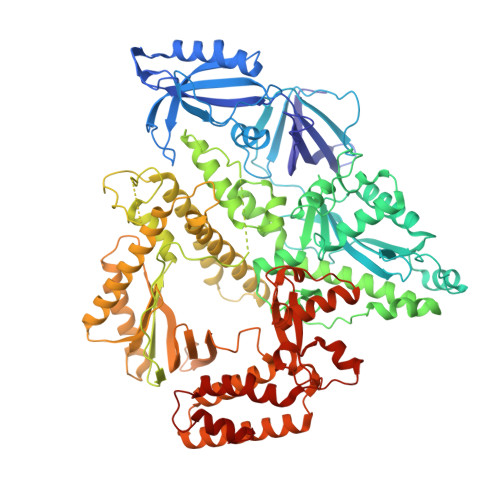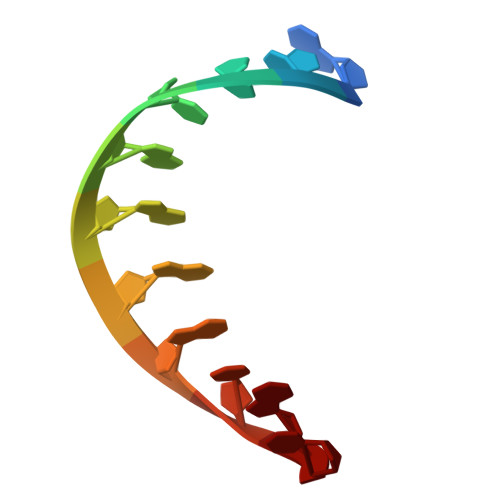The human primosome requires replication protein A when copying DNA with inverted repeats.
Baranovskiy, A.G., Morstadt, L.M., Romero, E.E., Babayeva, N.D., Tahirov, T.H.(2025) Nucleic Acids Res 53
- PubMed: 40829805
- DOI: https://doi.org/10.1093/nar/gkaf799
- Primary Citation of Related Structures:
9MJ5 - PubMed Abstract:
The human primosome, a four-subunit complex of primase and DNA polymerase alpha (Polα), initiates DNA synthesis on both chromosome strands by generating chimeric RNA-DNA primers for loading DNA polymerases delta and epsilon (Polϵ). Replication protein A (RPA) tightly binds to single-stranded DNA strands, protecting them from nucleolytic digestion and unauthorized transactions. We report here that RPA plays a critical role for the human primosome during DNA synthesis across inverted repeats prone to hairpin formation. On other alternatively structured DNA, forming a G-quadruplex, RPA does not assist primosome. A stimulatory effect of RPA on DNA synthesis across hairpins was also observed for the catalytic domain of Polα but not of Polϵ. The winged helix-turn-helix domain of RPA is essential for an efficient hairpin bypass and increases RPA-Polα cooperativity on the primed DNA template. Cryo-EM studies revealed that this domain is mainly responsible for the interaction between RPA and Polα. The flexible mode of RPA-Polα interaction during DNA synthesis implies the mechanism of template handover between them when the hairpin formation should be avoided. This work provides insight into a cooperative action of RPA and primosome on DNA, which is critical for DNA synthesis across inverted repeats.
- Eppley Institute for Research in Cancer and Allied Diseases, Fred & Pamela Buffett Cancer Center. University of Nebraska Medical Center, Omaha, NE 68198, United States.
Organizational Affiliation:
























